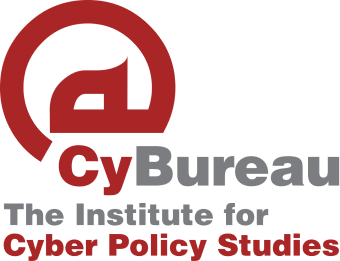Bashar is Sitting on the Network Fence
The Syrian government and its partisans block the Internet and close Facebook accounts but are also active on social networks. That’s how Syria fights in the on-line arena.
It is not easy today to live in Syria, or to be a journalist there, or even an Internet user. On account of the dictatorial rule and in the light of the protests against its legitimacy and its ensuing riots, the authorities take all kinds of measures to wage the battle in the on-line arena, against the Internet users in the country.
As part of its campaign against the communications in the country, Syria has been keeping five journalists under arrest (locals as well as foreigners), as well as causing injury to twenty more, from the start of the riots in the country. Dorothy Parvaz, Al-Jazeera correspondent in English, disappeared without a trace the day of her arrival in Syria, on April 29, 2011. After three weeks she was released, from Iran.
Different sources have reported that the Syrian authorities torture detainees in order to force them to reveal the details for accessing their Facebook accounts. That way they are able to bring to light the real identity of the organizers of the protests through the social network, as well as planting different kinds of conflicting messages, and even to close these accounts. Already in 2009, Syria was defined by the Committee for the Protection of Journalists as one of the most dangerous countries for bloggers, along with other nations in the Middle East.
On June 3, 2011, Syria closed off the Internet for 24 hours. True, Mid-Eastern countries have blocked, sometimes more and sometimes less, all kinds of Internet sites over the years, but such a hermetic closing-off is a rare event.
In addition, there were reports that Syria had carried out an on-line attack of the type “Man-In-The-Middle” against the secure site of Facebook at the beginning of May. During this attack, they succeeded after all to take control over the Facebook accounts of certain surfers.
Syria’s electronic army
On the other hand, it seems that the supporters of the regime themselves also seek assistance on Facebook, the Syrian Electronic Army It seems we are talking here about a group of pro-government hackers which has made it its purpose to break into Western Internet sites and into the Syrian opposition sites, as well as to strengthen the image of the Syrian regime as it appears all over the Net. The group is active on Facebook, on Twitter (there they report among other things events when Israeli and various international sites were hacked), YouTube, the Facebook page dedicated to the news about the activities of the group, and also another page dedicated to videos posted by the group.
This could indeed be the private venture of a local group of hackers. However, a better look into the social networks this organization is active in reveals a great effort put into their activity (even in graphics), by maintaining a high and quite frequent presence on these networks. The site syrian-es.com is listed under the name of the Syrian Computer Society (SCS) and it has been listed only lately, since May 5, 2011.
This body (if indeed it is the proprietor of the site) was constituted in 1989 and acts as responsible for the information systems and the Internet in the country. It was Bashar Assad who headed the organization until his appointment as president of the country in 1995. Pro-government propaganda may also be found on the site of TheSyrianDragon, a YouTube account opened on June 5, featuring a small number of videos fulminating against foreign media, especially Al-Jazeera.
In light of the prime importance it ascribes to the Internet in what is happening in its own country as well as in the other countries of the Middle East, the Syrian regime acts by a lot of different means, on the one hand in order to establish its influence on the Net by means of propaganda, and on the other hand with the aim of reducing the presence on-line of opposition elements by arrests, by closing their sites and even blocking the Internet in the country as a whole.
This post is also available in:
עברית

